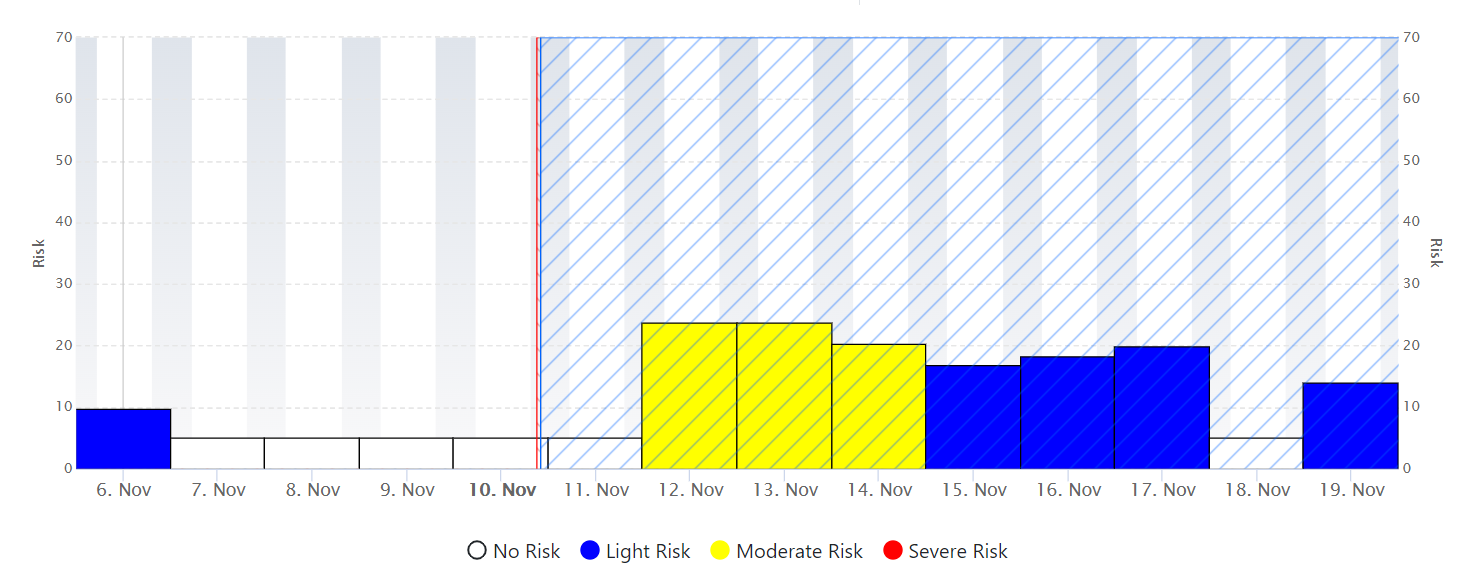Seen something unusual? MAKE A REPORT
Seen something unusual? MAKE A REPORT

On Friday we put out a Special Bulletin about Psa symptoms and management, after reports growers may have noticed or heard from others that Psa symptoms have appeared on several sites.
We’re interested in feedback regarding your orchard/s so please contact us if you have any questions or concerns after having a read of the Special Bulletin about what has been reported lately, as well as support available. We’ve also recorded a podcast with grower Mike Montgomery about symptoms on his orchard and the support he received, which has been very popular and can be listened to here. Thank you to those who have already been in touch.
Following last week’s challenging run of high-risk weather, a recent short window of calm has been appreciated by growers from all regions. Fine breaks have helped Gold3 pollination and also provided an opportunity to rebuild Psa protective cover, especially in areas like Opotiki and Gisborne which were recently hit hard by high winds and heavy rain.
However, risk builds again for most areas from Friday on, and low or moderate Psa risk then continues well into next week for Auckland, Waikato, the eastern and western Bay of Plenty, and Wanganui. Growers are urged to ensure their Hayward crops are protected prior to this period, to ensure flower buds make it through to pollination with minimal infection. As temperatures start to trend upwards, we will hopefully begin to see an end to this difficult spring weather with more settled and lower risk periods predominating.
A reminder to growers with young development blocks to keep monitoring and continue Psa protection, especially if vines were damaged in recent winds. Those on Psa undetected sites but in areas where Psa is present should also keep a close watch, continue to apply protective sprays and report any Psa-like symptoms to technical support staff or KVH.
Copper, Actigard and Aureo Gold are choices still open to growers pre-flowering. Aureo Gold is available for use until six weeks after fruit set and copper may also be applied but growers need to be aware of fruit sensitive periods to avoid risk of fruit marking.

KVH investigates reports of unusual symptoms to identify and manage any biosecurity risks.
The KVH portal is now the Zespri Weather & Disease Portal. Access all the weather tools you're familiar with.
